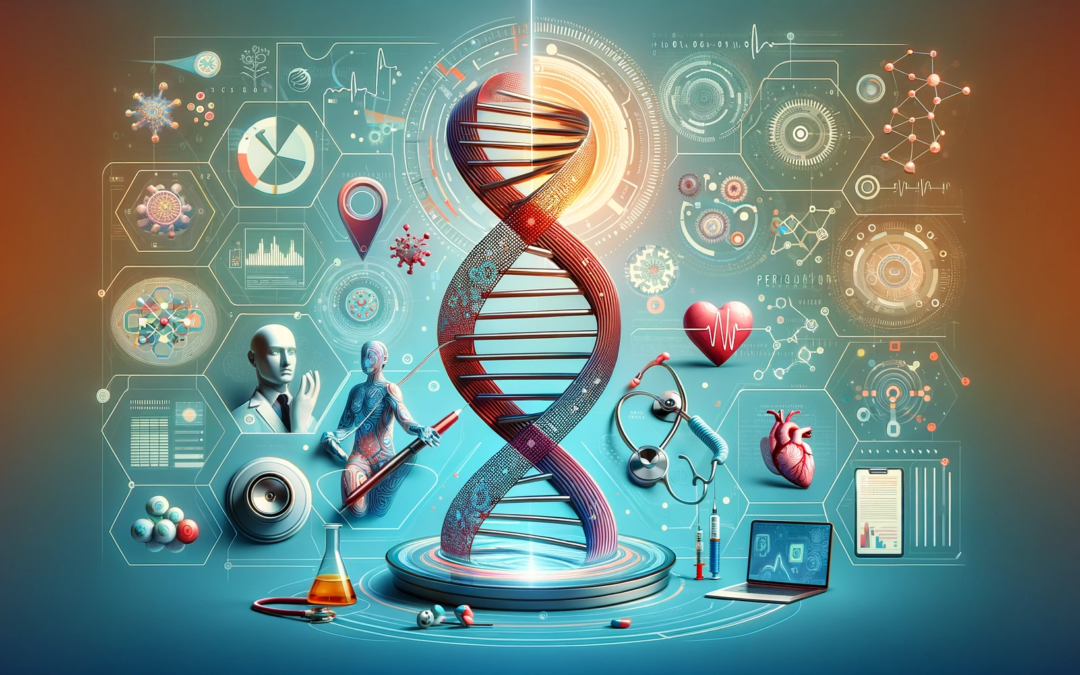The healthcare landscape is rapidly evolving, with a growing emphasis on personalized medicine. In this blog post, we will explore how AI is transforming healthcare by providing personalized treatment plans, precision medicine, and individualized patient care, thereby revolutionizing the patient experience and medical outcomes.
AI in Personalized Treatment Plans
AI is being used to analyze vast amounts of patient data and create personalized treatment plans. By taking into account individual genetics, lifestyle, and medical history, AI algorithms can generate tailored recommendations that optimize patient outcomes. Platforms and tools driven by AI are assisting healthcare professionals in delivering personalized healthcare at an unprecedented level.
AI in Precision Medicine
Precision medicine is an approach that aims to deliver targeted therapies and treatments based on an individual’s genetic makeup. AI plays a crucial role in precision medicine by analyzing genetic data, contributing to drug development, and enabling breakthroughs in treating complex diseases. Through AI-driven research and analysis, healthcare professionals can identify personalized treatment options that were previously unimaginable.
AI in Predictive Health Analytics
AI tools are also being used for predictive health analytics, allowing healthcare providers to identify potential health risks and predict disease outcomes. By analyzing patterns and trends in patient data, AI algorithms can provide early warnings and enable proactive interventions, leading to better health outcomes. The potential of AI in preventative healthcare strategies is immense, offering the opportunity to shift the focus from treatment to prevention.
Impact on Patient Experience
AI is transforming the patient experience by enhancing engagement and support. Virtual health assistants powered by AI are providing personalized guidance, answering questions, and offering support throughout the patient journey. Telemedicine and digital health platforms, driven by AI, are bridging the gap between patients and healthcare providers, making healthcare more accessible and convenient.
Ethical and Privacy Considerations
While the benefits of AI in personalized healthcare are undeniable, it is crucial to address ethical and privacy concerns. Data security and patient consent must be prioritized to ensure that AI-driven healthcare remains ethical and trustworthy. Striking the right balance between technological advancement and patient-centric approaches is essential to build a sustainable and responsible healthcare system.
The Future of AI in Healthcare Personalization
The potential of AI in healthcare personalization is vast, and the future holds even more exciting advancements. As AI continues to evolve, it will further transform personalized healthcare and patient outcomes. However, it is essential to ask critical questions about the long-term impact of AI on the healthcare industry and ensure that ethical considerations guide its development.
Engaging with the Audience
We invite you to share your thoughts and experiences with AI in healthcare personalization. Join the discussion about the potential benefits and challenges of AI in healthcare and help shape the future of medical care in the era of advanced AI.
Conclusion
AI is revolutionizing healthcare by enabling precision and personalization. Through personalized treatment plans, precision medicine, and predictive health analytics, AI is transforming the patient experience and improving medical outcomes. As we embrace the potential of AI in healthcare, it is crucial to balance technological advancement with ethical considerations and patient-centric approaches to ensure a sustainable and responsible future for personalized healthcare.










